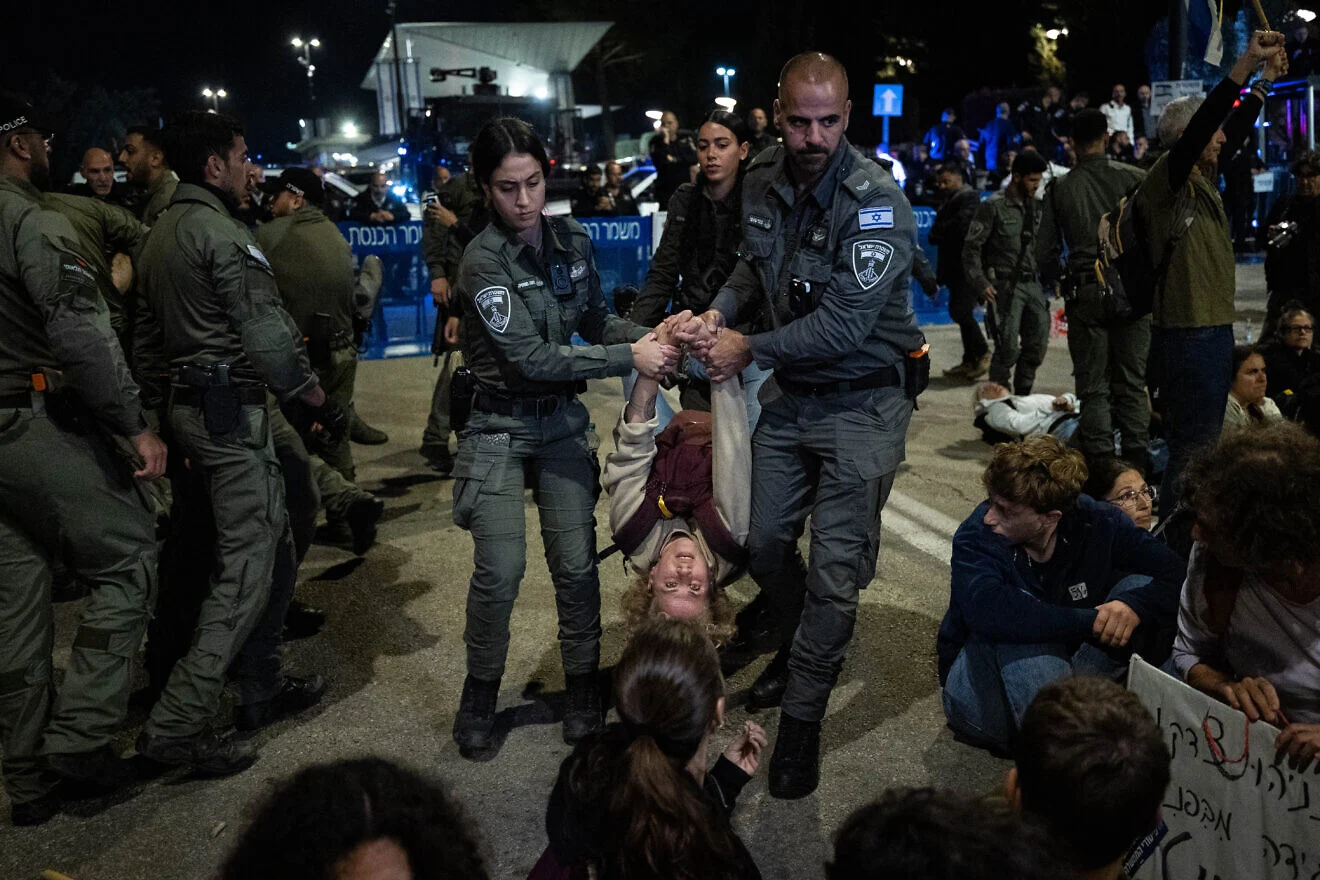For the past year, Israelis have watched wave after wave of protests sweep the country, with the political left proclaiming their mission to “save democracy.” From mass demonstrations and road blockages to storming the Knesset and launching international campaigns, the narrative has been loud and consistent: The Netanyahu government is supposedly endangering Israel’s democratic system.
But when we take a step back and examine the broader context—particularly the history of right-wing protests in response to left-wing policies—a very different picture emerges.
Unlike the current protests, which object to legal and democratically sanctioned decisions, past right-wing demonstrations have been in direct response to genuine violations of democratic principles: the will of the people being ignored, laws broken and authority abused. Two pivotal moments in Israeli history illustrate this stark contrast.
In the early 1990s, the Rabin government initiated the Oslo Accords, a dramatic and controversial shift in Israeli policy. These agreements involved recognizing and negotiating with the Palestine Liberation Organization, a group long designated as a terrorist organization responsible for the deaths of hundreds of Israeli civilians.
The problem? Israeli law at the time explicitly prohibited negotiations with the PLO. Yet, Yitzchak Rabin, alongside Foreign Minister Shimon Peres and Yossi Beilin, conducted secret talks in Oslo, circumventing both legal boundaries and public consent.
To secure the Knesset’s approval for the accords, Rabin went even further. Two right-wing Knesset members were offered government positions and luxury cars in exchange for switching their votes—a blatant act of political bribery. That razor-thin majority was achieved not through democratic persuasion but through transactional manipulation. Half the country stood firmly against the accords, yet they were rammed through in defiance of public opinion and legal norms.
The right responded with massive, peaceful protests. Hundreds of thousands of Israelis took to the streets to voice opposition. But rather than engage in a national debate, the left dismissed these protestors as extremists, inciters and enemies of peace.
Fast forward to 2005. Ariel Sharon was elected prime minister on a platform explicitly opposing unilateral disengagement from Gaza. Labor leader Amram Mitzna had proposed evacuating Gaza, and the Israeli public overwhelmingly rejected his vision, choosing Sharon instead. Sharon had assured voters that Gaza’s Jewish communities were no different from Tel Aviv and would never be uprooted.
Then, once in office, Sharon did the exact opposite. He adopted the very plan he was elected to oppose—evacuating every Jewish community from Gaza and handing the region over to the same terror groups he had campaigned against.
To force the disengagement plan through, Sharon fired ministers who opposed him to ensure a compliant cabinet. He held a referendum among Likud Party members, and when he lost, he ignored the results. He not only betrayed his voters—he trampled democratic mechanisms at every turn.
Again, the right protested democratically. Families marched, citizens engaged in civil disobedience and hundreds of thousands demonstrated across the country. But there was no violence, no assault on government institutions and no delegitimization of the state.
Now, let’s contrast those moments with the current protests against Israeli Prime Minister Benjamin Netanyahu’s government.
This government was elected in free and fair elections. Yet from day one, the left has treated its victory as illegitimate, launching aggressive, often disruptive protests. But what exactly are they protesting?
They’re not protesting violations of the law. They’re protesting legal actions taken by a duly elected government—actions entirely within the government’s rights.
Consider two examples:
- Replacing the head of the Shin Bet: A legal and routine decision within the government’s authority.
- Firing the Attorney General: Also, entirely legal. In fact, a precedent exists—Attorney General Yitzhak Zamir was dismissed in 1986 under the joint government of Menachem Begin and Shimon Peres.
These are not constitutional crises. They are legitimate exercises of power. Yet the left’s response has been to block roads, clash with police, storm the Knesset, intimidate members of Knesset and wage international pressure campaigns—not because democracy is in danger, but because they lost an election.
The difference is crystal clear.
When the right protests, it is in defense of democratic values—against governments that ignore the people’s will, break the law, or enact radical policies without a mandate.
When the left protests, it is because a democratically elected government is making legal decisions they dislike.
As protest leader Ami Dror proudly declared, “We have blocked all the entrances to the Knesset. This is how you stop a dictatorship.” But there is no dictatorship. Blocking elected representatives from voting in the Knesset is the very definition of undermining democracy.
So let’s ask the fundamental question: Which camp truly respects democracy—and which is working to subvert it?
The facts speak for themselves.


























